Shorter hours and portable loos: How London’s West End is reopening shops after lockdown
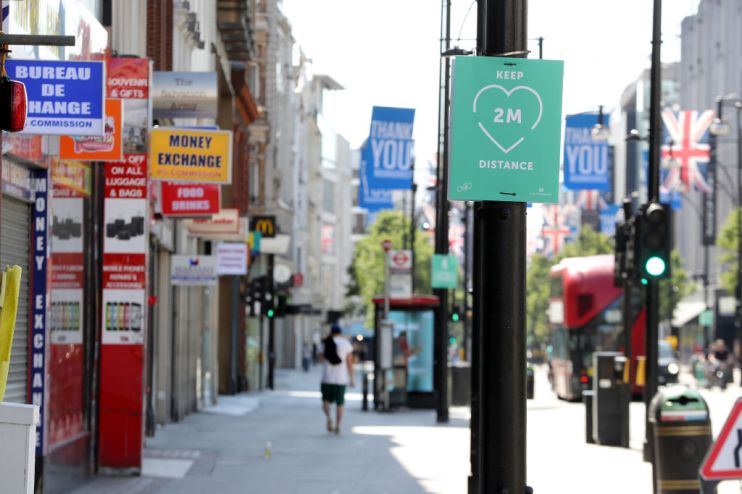
The West End was one of the first areas of London to suffer the economic damage wrought by coronavirus, even before lockdown.
By mid-February, people were already avoiding the usually bustling restaurants of Chinatown, following false reports that the disease could be caught more easily there.
Now, after months of lockdown-induced hibernation, businesses across the neighbourhood – which includes the UK’s busiest shopping streets Oxford Street and Regent Street – are set to re-emerge today.
But with social distancing measures in place, the streets of the West End are going to look very different to the ones shoppers left behind.
City A.M. takes a look at what to expect.
Bigger pavements
Brian Bickell, chief executive of Shaftesbury, which owns most of the property in the neighbourhood, says the first priority is to increase the amount of pedestrian space.
“More space means we can have tables and chairs out on the street, so that restaurants and bars have an opportunity to start getting more turnover,” Bickell says.
“Obviously you can’t just plonk tables and chairs down anywhere. There has to be an element of servicing that goes with it, and those streets have got to be kept open for emergency vehicles.”
“But this is an opportunity to really make this a pedestrian friendly city, and I think a lot of those measures are really going to be here for a long time.”
Jace Tyrell, chief executive of business group the New West End Company, adds that signs both on the pavement and at eye level will be installed to help people maintain social distancing.
“There are going to be hundreds of red dots all over the pavements and signage on the streets,” he says.
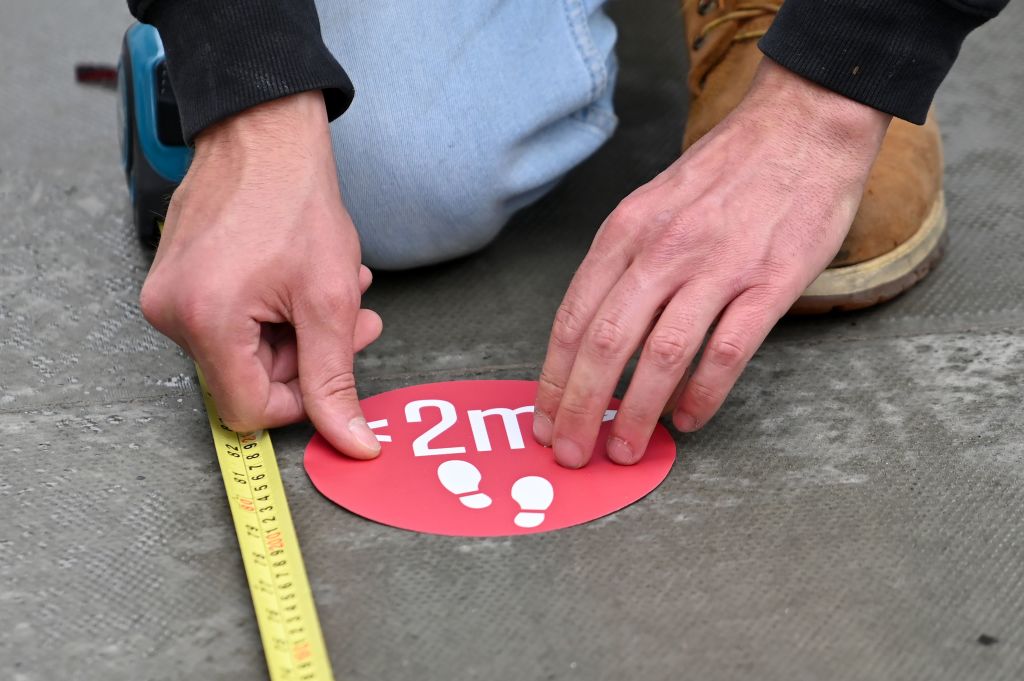
Portable loos on the streets
Meanwhile the many carefully curated streets of Seven Dials, Soho, and Shaftesbury Avenue could also become home to thousands of items more commonly found in muddy music festival fields: portable loos.
Tyrell tells City A.M. that the streets are likely to be lined with “dozens” of the portable toilets over the summer.
“Once the food and beverage sector opens up again, hopefully gone are the days of having lots to drink and peeing in the street,” he says.
“We’ll need extra toilet facilities,” adds Bickell. “People are not necessarily going to go to the loo inside a restaurant if they’re sitting outside.”
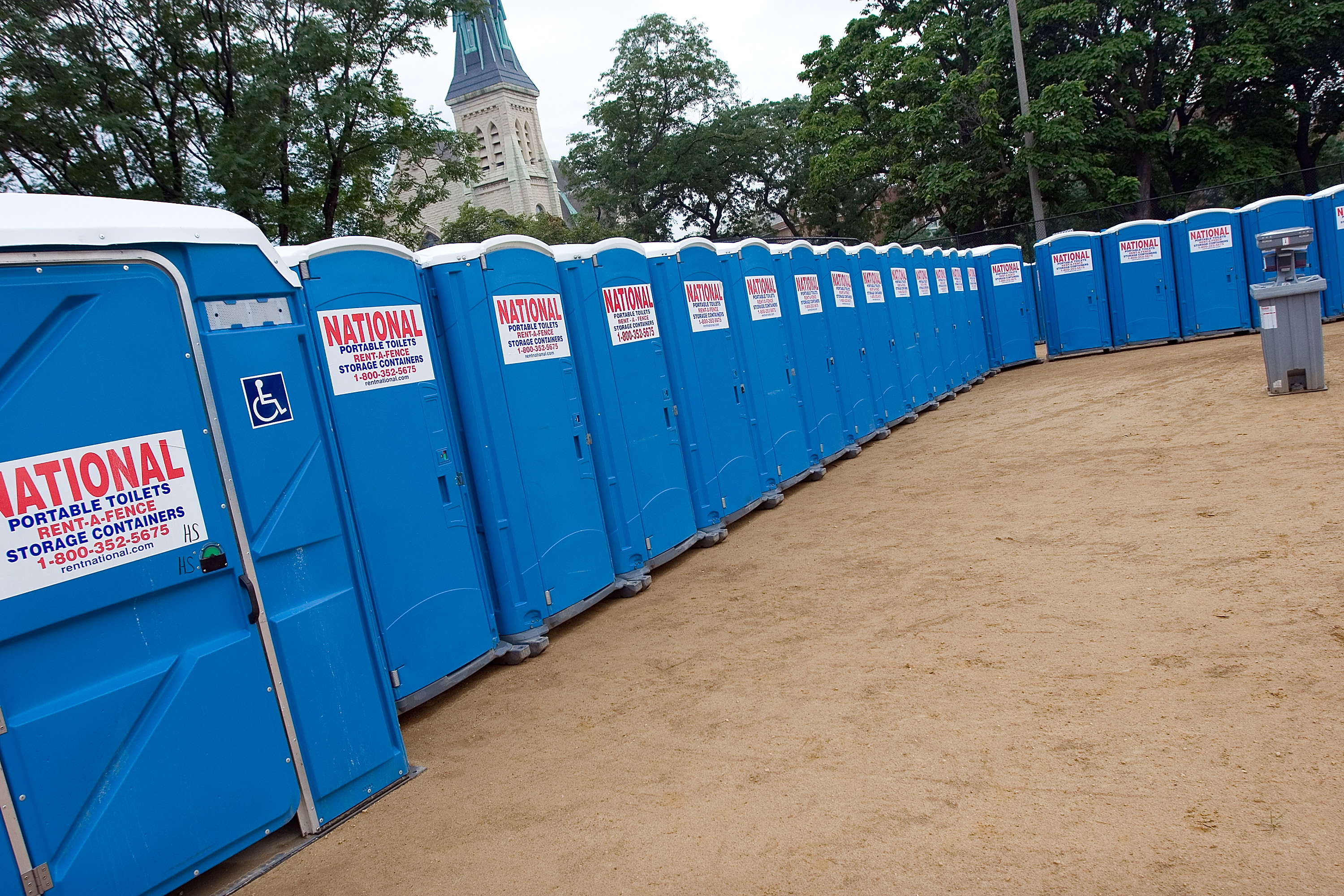
Cleaners out in force
More cleaners will be operating during daytime hours, where they would usually have taken evening or early morning shifts, Tyrell adds.
This is part of a wide push to instill confidence among consumers that the area is as hygienic and safe to visit as possible amid the pandemic.
“I think it’s really important that we have more cleaners around during the trading day, and I think that physical reassurance that cleaning operations are happening will help people.
“We’ve almost tripled the cleaning operations, so although they will not be wearing hazmat suits they will have protective equipment that you’d expect of cleaning operations everywhere at the moment.”
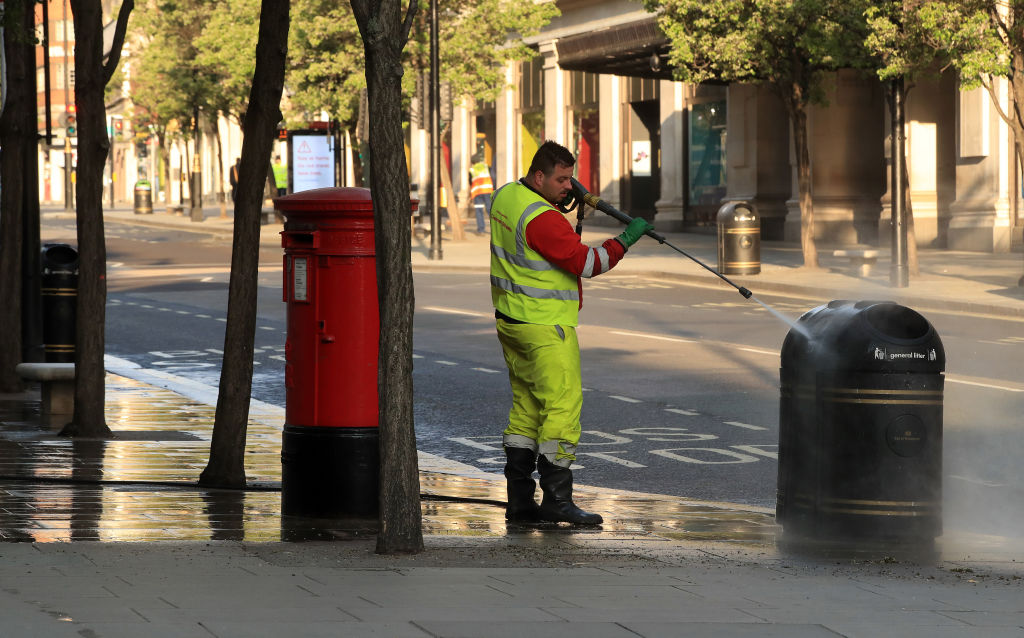
Different opening hours
Shops will initially have much shorter opening hours, so as to avoid rush hour and reduce the amount of people inside at any one time.
The New West End Company has encouraged retailers to keep to hours between 11am and 5pm, or 7pm at the latest.
Meanwhile, when pubs and restaurants open again, their licencing restrictions – usually exceptionally tight in the area – could be relaxed, giving punters more flexibility over when they can have a drink.
“We might get some licensing relaxations as well so people can trade a bit longer in the evenings,” says Bickell. “We might have it so you can maybe even just go into a restaurant and have a drink, and you don’t have to eat necessarily.”
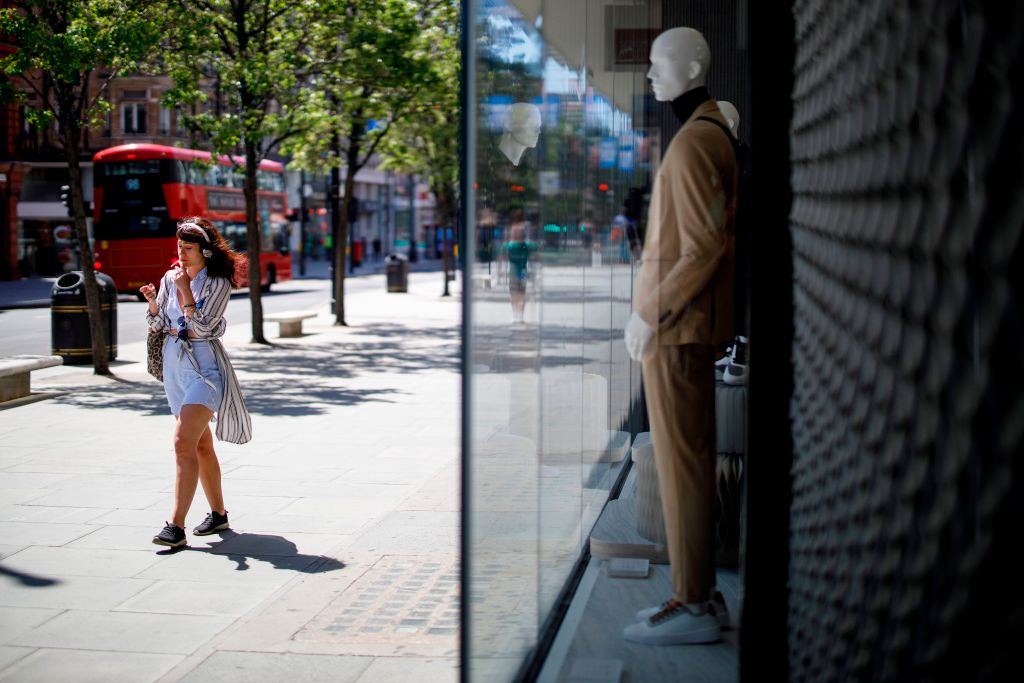
Quieter streets
Perhaps the most striking difference between the West End of the past and that of the coming summer, however, will be just how few people are about.
With shops reopening this morning, Tyrell says many are expecting as little as one-sixth of the usual footfall.
“We haven’t got the international tourists, we haven’t got the UK tourists, and we haven’t got the office workers on anywhere near the scale we had before lockdown,” he says.
“We’re really not expecting high demand over those first few weeks. We expect around 15 to 20 per cent of footfall.”
However, he adds, this could give Londoners a chance to explore the West End with more freedom, with fewer people on the usually teeming streets.
“[The lack of tourists] should give Londoners particularly the confidence to come into the open air,” he says.
“We’re never going to see a summer like it again.”